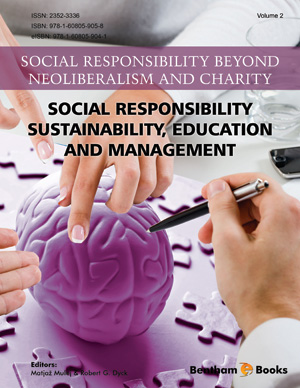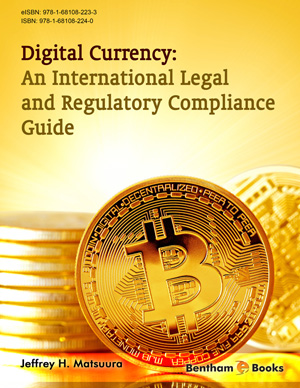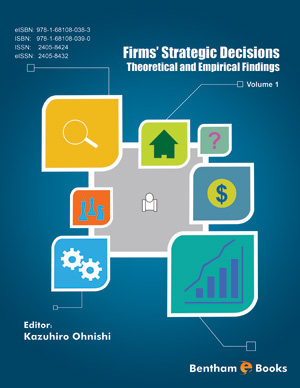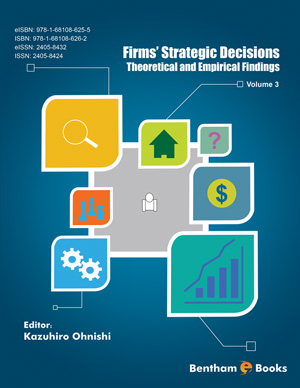List of Contributors
Page: vii-viii (2)
Author: Matjaž Mulej and Robert G. Dyck
DOI: 10.2174/9781608059041114020003
Avoiding a Global Transport Crisis Following the Depletion of Oil and Gas Supplies: A Crucial Case of Social Responsibility
Page: 3-57 (55)
Author: John Kidd
DOI: 10.2174/9781608059041114020004
PDF Price: $15
Abstract
Most global transportation systems rely on oil as a fuel (or its derivatives of bunker fuel, diesel or gasoline), and for lubricants. Oil mostly powers the machines of agriculture, the transportation of food and goods along the roads, and the international shipping that moves bulk of goods from sources to manufacturers, and then to consumers again across the open seas. All these systems are vulnerable to price variations in fuel and ultimately to the continued pumping of crude oil from the ground. Although estimates vary, it has been suggested that peak oil production from conventional sources occurred in 2006, and the gas peak will soon arrive (the coal peak is slightly later). Once we have passed a peak, production of the fuel quickly becomes much more expensive, as the remaining resource becomes more difficult to extract.
Instead of a global dependence on oil as the preferred fuel for transportation this chapter argues we ought to use electricity as a primary fuel; and that we should now be assuring ourselves of adequate supplies of electricity, before we run out of both the transport and productive capacity necessary to establish both a new and enhanced electricity supply and its distribution infrastructure. Further, we need to invest in a future global land transport system that does not depend on oil as its fuel.
We argue that the best options at this time are -
1) To capture as much renewable energy as possible and to transmit this power by high voltage direct current grids to densely populated regions where there is a wide range of production capacity, and
2) To implement a high-capacity transport system for both people and goods that relies on electricity, rather than oil or gas as its primary fuel. The freight mode must support the entire logistics chain from raw material supply to the delivery of finished goods, including minerals, water and other liquids, and food stocks.
In other words, before we lose the conventional fuel supplies that now power transportation systems for our entire life cycle, we must build resilient new infrastructures: then science and technology can create further processes for our survival.
The Role of Indicators and Scientific Research in the Sustainable Development of Croatia: An Overview
Page: 58-83 (26)
Author: Emira Bečić and Jadranka Švarc
DOI: 10.2174/9781608059041114020005
PDF Price: $15
Abstract
Sustainable development (SD) and social responsibility (SR) are like twins: sustainable environment is one of the seven core subjects in ISO 26000, and SR is necessary to support it. Good indicators are necessary to assist the process. This chapter presents an overview of the development of indicators of sustainable development (SDI), as well as scientific research on SD, in Croatia. The analysis of the indicators is based on a national set of sustainable indicators developed recently by several different developers, with a focus on the EU in comparison with other regions in the world. Key challenges include: (1) comparability and aggregation variability of SDI in relation to the quality of data, determined by the SD policies; (2) impacts and reflections of compiled SDI on different kinds of user needs; and (3) contributions of R&D to sustainability. This overview of scientific research summarizes data provided by the Ministry of Science, Education and Sports, and other available studies. The paper concludes with consideration of the critical role of scientific research in SD, together with key lessons learned concerning the implementation of SDI, which can be highly contextual and dependent on the needs of the end-users.
Social Responsibility Promotion by a Learning Region for Sustainable Development: A Case from Slovenia
Page: 84-95 (12)
Author: Ana V. Korže and Mojca K. Krajnc
DOI: 10.2174/9781608059041114020006
PDF Price: $15
Abstract
This chapter deals with learning environments in Slovenia, enabling many schools to practice experiential education for sustainable development. In recent years, municipalities and various organizations have established around Slovenia different settings for it that need to be connected. Schools need to enhance experiential education and increase the usefulness of the gained knowledge in practice. New challenges in education are emphasized by the European Commission, which encourages Member States to responsibly carry out the educational process. The emphasis is on broad capabilities that open the door to different activities. More attention should be paid to the intergenerational cooperation, which is a good addition to the practice education and responsibility.
University Education on Sustainable Development as a Contribution to the Shared Responsibility of Experts and Knowledge-Based Society
Page: 96-118 (23)
Author: Jan W. Dobrowolski
DOI: 10.2174/9781608059041114020007
PDF Price: $15
Abstract
Formal task-oriented training at universities provides neither a systemic approach to sustainable management of the natural resources nor education in knowledgebased society of experts and decision-makers as active partners. Methodological experiences of long-term interdisciplinary studies and problem-solving training, focused on sustainable development in protected, industrial regions, and historical cities of Poland, will be useful for promotion of similar activity in other countries, as recommended by UN’s Decade of Education for Sustainable Development. The former rector of AGH University of Science and Technology, Prof. W. Goetel, initiated the concept of sustainable management of natural resources in Europe, in 1956. He started the Open-for-all Seminars on Nature Protection and Sustainable Management of Resources some 50 years ago, and recommended the interdisciplinary science “sozology” to save the natural environment and proper conditions of life for future generations.
In 1967, the author of this chapter introduced the concept of the integration of all levels of education for common action–with action to be focused on primary prevention of deterioration of the natural environment and over-exploitation of natural resources. Over 3000 university students from the natural, technical, and socio-economic sciences took part in the National and International Summer Schools on ‘Human Environment and Sustainable Development’ based on voluntary activity of the students’ scientific teams (NGOs). From 1989 through 2010 we organized 12 International Conferences on European Integration for.
Sustainable Development, and since 1989 the AGH ‘Open University on Science and Technology for Better Life Quality’ has been operational. We hope that the voluntary education of particularly creative students and representatives of all age groups of the contemporary society can contribute to sustainable management of natural resources at the regional scale, in linkage with international cooperation for protection of the Biosphere, as preconditions for survival of Mankind.
Performance Levels of Roma Pupils in Foreign Language Learning: Social Responsibility in School
Page: 119-136 (18)
Author: Saša Jazbec, Branka Čagran and Alja L. Oštir
DOI: 10.2174/9781608059041114020008
PDF Price: $15
Abstract
The chapter addresses an insufficiently researched aspect of education of the Roma population, using the example of their performance at foreign language learning in Slovenia. The theoretical foundations of language learning, the historical situation, and the current living conditions of the Roma support the thesis that foreign language learning success among the Roma is poorer than the performance of non-Roma. This affects their success levels in other subjects requiring language competence. After considering the importance of foreign language learning for each individual and the current didactic concept of foreign language learning, our empirical research for Roma pupils demonstrates that they tend to learn foreign languages pragmatically rather than in academic ways that are more abstract; that lifestyle circumstances force them to speak at least two languages; and that they are more successful with German, which they are more likely to use and learn than English. Such results require radical reflection, revision, and innovation of existing language learning didactics.
Can Strategic Management Show the Way Out from the Current Crisis Towards Social Responsibility?
Page: 137-177 (41)
Author: Tjaša Štrukelj
DOI: 10.2174/9781608059041114020009
PDF Price: $15
Abstract
This chapter deals with social responsibility, enterprise policy/governance, management, and their innovation. Several different approaches to strategic planning are analyzed. They include planning and configuration schools of thought. Innovative configuration of enterprises encourages improved organization of enterprises’ policy/governance, management, and operation and encourages innovation. We conclude that the requisite wholeness of the enterprise’s social responsibility policy is important within the governance of the enterprise. It carries social responsibility into effect within the invention-innovation-diffusion process.
Family and Non-Family Enterprises: Differences in Core Values, Culture and Ethical Climate as Signs of Social Responsibility
Page: 178-199 (22)
Author: Mojca Duh and Jernej Belak
DOI: 10.2174/9781608059041114020010
PDF Price: $15
Abstract
Family enterprises are a unique type of an enterprise. The research presented in the paper, based on case study methodology, aims to broaden our knowledge concerning the family impact on the constituent elements of the enterprise’s ethical behaviour.
Socially Responsible Management in Public Administration
Page: 200-228 (29)
Author: Nina Tomaževič
DOI: 10.2174/9781608059041114020011
PDF Price: $15
Abstract
This chapter points out the need for new approaches in the management of public sector organizations and describes the socially responsible management process which public sector organizations could exemplify for private sector organizations. Although public sector organizations have a different primary goal than private sector organizations, we develop a general model of socially responsible management. It systematically involves all stakeholders of an institution and holistically covers all phases of management.
Introduction
Current global economic crises call for social responsibility to replace neo-liberalistic, one-sided and short-term criteria causing monopolies of global enterprises. The triad ‘freedom, brotherhood, equality’ and ‘the invisible hand’ support the hypothesis of interdependence among humans. Humanity’s existence is endangered under the threat of global capitalism, unless the social responsibility’s concept ‘everyone’s social responsibility impacts everyone in society’ becomes the new socio-economic order, realized alongside concepts as ‘interdependence’ and ‘holism’ and using its principles of accountability, transparency, ethical behavior, respect for stakeholders, for the rule of law, for international norms and human rights. Social Responsibility – A non-technological innovation process explores the realm of social responsibility in the context of innovation, business practice and economic crises. Readers can apply related principles to their business practices and enhance their business prospects in a modern environment facing the challenges of socio-economic crises. This volume is intended for graduates and professionals working in government organizations and commercial enterprises, to learn basic concepts about social responsibility and introduce holistic management practices in their daily and professional lives.









.jpg)


